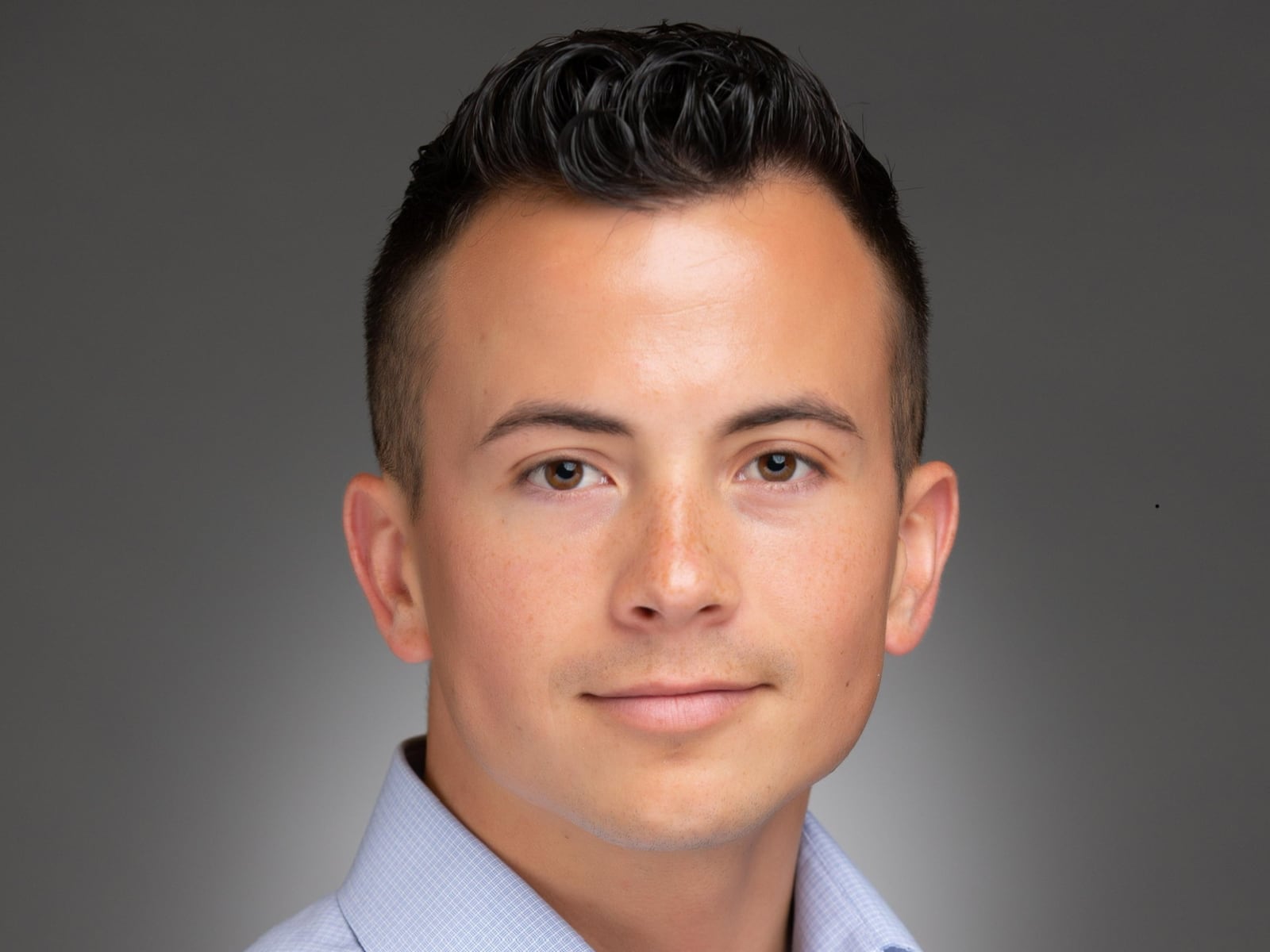With over 300 current members, the Shivwits Band of Paiutes — a federally recognized Native American band based in southern Utah — is one of several Southern Paiute tribes originally based in modern-day southern Utah and parts of Arizona, Nevada and California. The Shivwits Band Reservation now encompasses about 28,000 acres of land in Washington County.
Though the band has historically been underserved, the Shivwits Band Council’s clear vision for economic development and community investment demonstrates its resilience. Much of the band’s strategy is focused on building Kaiva Corporation, which includes two of the Shivwits Band’s federal contracting companies, Kaiva Services (a systems integrator that provides logistical, supplier and manufacturing services) and Kaiva Tech (which offers IT and cybersecurity solutions). Cameron EchoHawk has developed the strategy alongside the Shivwits Band from the ground up.
At 17, EchoHawk opted to graduate early from high school in Pocatello, Idaho. He completed his junior and senior years at the same time, while still managing to graduate with honors.
“Graduating early helped me to identify as somebody who didn’t always follow the norms and do what everybody else did,” he says, “[The idea] of thinking outside the box and challenging the status quo helps me to do what I’m doing now, and I think it helps from a business strategy perspective.”
EchoHawk is the second of five siblings and loved spending time outdoors while growing up on his family’s five acres. He and his family are registered members of the Pawnee Nation of Oklahoma and have built a multi-generational legacy advocating for Native American communities on a local and national scale. His father, Mark EchoHawk, provides legal representation to nearly a dozen Native American tribes. His grandfather, Larry EchoHawk, culminated a long legal career as the assistant secretary of the interior for Indian Affairs under then-President Obama. EchoHawk’s brother and several of his uncles, great-uncles and cousins are lawyers as well.

For EchoHawk, the ultimate plan was always to go to law school.
However, while pursuing a degree in strategic management at Brigham Young University (BYU), EchoHawk applied for a gap year position overseeing economic development for the Shivwits Band. The job went so well, he decided to forego law school altogether.
“I loved studying business and was always aware of … the idea of working with tribes through my father’s career, my grandfather’s career,” EchoHawk says. “When I took the job with the Shivwits Band, they had just one small company, about 10 employees. We’ve since grown by 15 times. Seeing the need there made me decide not to go to law school.”
He adds, “And we already had [the legal] side covered with everybody else.”
Discovering ‘under-recognized, under-appreciated’ opportunities
During that first summer on the job, EchoHawk learned about the unique opportunities available to Native American tribes. Through their status as sovereign nations, tribes have distinct tax and regulatory standing under federal law, and that standing applies to any businesses owned by the tribes as well. For example, through the Small Business Administration’s 8a program, minority-owned businesses are eligible for federal contracting as well as training and technical assistance. Kaiva operates under this program to offer its federal contracting services, and one of EchoHawk’s main goals is identifying opportunities like these to gain a competitive edge.
“When most people think about tribes and business, they think about gaming [gambling], but Utah tribes can’t do any gaming because the state doesn’t allow it,” EchoHawk explains. “We looked at other business models that have been successful in Indian Country. Federal contracting is one of these. Our strategy, our focus, is identifying the key competitive advantages that are available to tribes and their businesses and leveraging those to win in the marketplace. From there, we’ve been able to hone existing operations, make them more profitable and successful, and then start new [businesses].”
Upon returning to BYU, EchoHawk approached his business strategy professor, James Oldroyd, to relay what he learned. He told him about the 8a and other programs and the opportunities they could provide to Native American tribes nationwide.
“When you have a compelling mission, purpose or ‘right reason’ for doing something, it will guide you to do the right thing. I think it’s helpful in life and in business to not get caught up chasing profits or the latest trend.”
— Cameron EchoHawk
“I didn’t believe a word he said,” Oldroyd laughs. “If that were true, everyone would be doing [it]. But it turns out it’s just under-recognized, under-appreciated.”
Oldroyd, one of EchoHawk’s mentors, was amazed at the opportunities the team at Kaiva was cultivating.
“Cameron’s one of the hardest workers I’ve met. We think about the stock market, we think about the bond market, private equity and investments … and yet, no one has really thought about tribal [investment],” Oldroyd says. “Cameron’s bringing that to the fore and saying, ‘Look, there’s opportunity here in tribal country that could really help [Native American communities] and also be a sound business opportunity.’ I think, long term, that will have a big impact.”
Success means more
Only six years after graduating from BYU, EchoHawk has risen from economic development director to CEO of Kaiva Corporation and its parent company, the Shivwits Band Corporation. The Shivwits Band Corporation holds all of the band’s economic development entities, including a diverse portfolio of investments in convenience stores, sports complexes and a payment processing company.
Meanwhile, Kaiva has exploded, growing from 10 employees to 150 and increasing its revenue by 15 times. They’ve done contracted work locally and overseas and expanded their offerings into other growing sectors, such as aerospace. They’ve acquired other groups, including the veteran-owned federal contracting company Bannon Contracting Services. Plus, after establishing their third subsidiary company, the leadership team is already developing a fourth.
Because Kaiva is wholly owned by the Shivwits Band, growth doesn’t just benefit the business. Revenue growth is tied to tangible benefits for band members, and the overarching mission is to invest back into the community.
In addition to providing jobs and training for band members, Kaiva and the Shivwits Band Corporation also provide funding for the tribal government. Tribal governments are distinct from federal and state governments and don’t tax their members to generate revenue. This means that revenue from band-owned businesses goes directly to the people in the community who need it most.
“We provide funding for scholarships. We provide distributions for everybody at Christmas and to the elders,” EchoHawk says. “Everything we do is centered around trying to positively impact the community through economic development.”

Emil Hinkefent, Kaiva’s president, joined the team in 2021 via the acquisition of Bannon Contracting Services. He adds, “The things we do have a trickle-down effect and broader impact across the community. What I’ve learned is that our mission … has become the mission and passion of our customers and our partners as well. It’s been really exciting to see … the community develop and be a part of that. For our customers, our partners, the manufacturers and everybody involved with Kaiva — it’s become a part of their mission as well.”
A business model like Kaiva’s requires full cooperation across the community. EchoHawk credits the Shivwits Band with having the foresight to make this endeavor possible.
“One of the great things about the Shivwits is their vision for economic development and [building] a brighter future for their kids, grandkids and future generations,” he says. “If you don’t have that kind of perspective, then doing what we do wouldn’t work because the tribal government is essential. They need to be in lockstep with us, with the board of directors, with the executive management teams. Having a council with the right vision is critical, and the Shivwits Band Council has that vision.”
A blueprint for the right thing
It’s not easy to build a profitable business, let alone one that has a direct, positive impact on the community. But with a combination of savvy business practices, a deep understanding of available opportunities, and a commitment to making a difference, the Shivwits Band and EchoHawk are doing just that. He sums it up by saying, “I love to see the positive impact, and I want to help these tribal communities prosper in a way that they haven’t before.”
As EchoHawk continues his work with the Shivwits Band Corporation and Kaiva, he has also set up EchoHawk Consulting Group, a consulting firm dedicated to helping tribes like the Shivwits Band succeed in economic development.
“Where we find our most compelling work is the tribes that have a need, where they don’t have a large gaming income,” EchoHawk says. “When there’s no existing source of income, we can help them to generate one that starts to create a positive impact. That’s where we do our most meaningful work. We can help them start from ground zero.”

EchoHawk points to a number of other mentors and collaborators who have helped shape his success, including his grandfather, Larry EchoHawk; Oldroyd; and Jeffrey Dyer, who serves on the board of the Shivwits Band Corporation. Though he didn’t follow the legal path, EchoHawk also still works closely with his father, who provides legal services to the Shivwits Band and other tribes throughout the Intermountain West.
His dedication to driving results for the band is what really sets him apart, according to Oldroyd. “I love Cameron’s vision to get in and help the tribes prosper,” he says. “They have the opportunity to, with some of the tribal advantages, really create a lot of value. Cameron is working hard to make that happen.”
Hinkefent seconds EchoHawk’s commitment to the mission, “[EchoHawk] is just an absolutely sharp, driven young individual that has a great head on his shoulders and great business acumen. He’s somebody who is easy to work toward solutions with and really has the best interests of both the companies as well as the tribe in all the actions that he takes. … He’s a great person inside and outside of the office.”
When asked what motivates him, the answer is simple. That same laser focus and out-of-the-box thinking that led EchoHawk to early high school and college graduations is rooted in purpose — a strong sense of the impact of what you’re doing and the difference it will make.
“When you have a compelling mission, purpose or ‘right reason’ for doing something, it will guide you to do the right thing. I think it’s helpful in life and in business to not get caught up chasing profits or the latest trend,” he says. “If you’re trying to do good and be good and help people, then I think that guides you to make the right decisions about your personal life and about business.”

